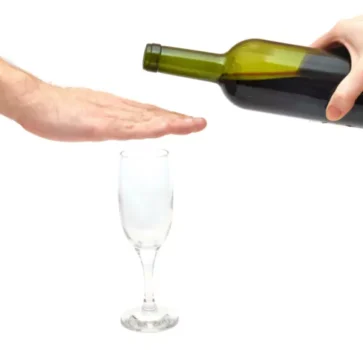
The ECT process has evolved significantly, and the current form is much gentler and more targeted than in the past. It operates similarly to TMS, except it uses brief electrical stimulation to parts of the brain while someone is under anesthesia. It is very effective, potentially even more effective than TMS for those with severe depression. It includes mindfulness as a strategy to manage discomfort as it occurs. CBT is a great option for overcoming depressive thoughts and developing new strategies for coping with depression outside of alcohol use.
Medication
- If you’re concerned about your alcohol use, you may benefit from substance abuse counseling and treatment programs that can help you overcome your misuse of alcohol.
- However, there is no evidence that moderate drinking will cause anxiety.
- Mental health issues can overwhelm those who are affected and their loved ones.
- Alcohol use can also affect how antidepressants work, which can affect depression treatment.
- The more you drink, however, the more likely your emotional state will begin plummeting back down.
- Furthermore, there is likely to be significant individual variation in the level at which alcohol use negatively impacts depressive symptoms and depression treatment.
Research has repetitively demonstrated that including daily mindfulness in one’s life can help with treating a wide array of health conditions, including depression and alcohol use. Meditating minutes a day can play a pivotal role in helping the brain make lasting changes to improve mental stability. It is highly recommended for those struggling with depressive symptoms and/or alcohol use disorder to begin each day with mindfulness exercises. It can be tempting to drink if you’re feeling unhappy, but there’s a better solution out there. When treating depression and substance abuse, consult with a mental health professional and/or an addiction specialist who can provide resources and recommendations for possible treatment options.
- As a result, you could drain your bank account, lose a job, or ruin a relationship.
- Alcohol may be a form of self-medication for people with depression.
- In residential treatment, “an individual stays in a treatment setting, receives intensive therapy, and is physically separated from alcohol in order to recover,” says Kennedy.
- Seeing a mental health professional right away is very important if you also have symptoms of bipolar disorder or another mental health condition.
Long-Term Risks of Alcohol Dependence

That’s why your doctor or psychologist will work with you to create a treatment approach that addresses both issues. Drinking water may not have a direct impact on feelings of depression, but rehydrating can absolutely help you start feeling better physically. As hangover symptoms begin to subside, the emotional effects may follow. If you think you have a problem with alcohol, seek help from your doctor right away. Research shows that people with alcoholism find it difficult to recover from traumatic events. This is possibly because of the effects of alcohol abuse, which can actually change brain activity.

Alcohol Use Disorder and Depression
“People who have an anxiety disorder and then drink are going to have even bigger effects,” says Koob. If you’re being treated, he suggests asking your doctor to make sure it’s OK for you to even drink at all—it may be contraindicated for some depression and anxiety medications. At the same time, people with depression may attempt to self-medicate with alcohol. The long-term consequences of alcohol abuse can be a variety of health problems, including mental health disorders. For example, you may need medication to correct the brain chemical imbalance involved in major depression.
Address negative feelings when they come up
- If not treated, alcohol use disorder can become a life-long struggle.
- Similarly, Crum, Brown, Liang, and Eaton (2001) demonstrated that depressed female problem drinkers were twice as likely to become daily drinkers compared with nondepressed female problem drinkers.
- If you’re being treated, he suggests asking your doctor to make sure it’s OK for you to even drink at all—it may be contraindicated for some depression and anxiety medications.
- American Addiction Centers (AAC) is committed to delivering original, truthful, accurate, unbiased, and medically current information.
Using alcohol to combat depression symptoms not only makes the depressive symptoms worse but also increases the risk of suicidal thoughts and life-threatening actions. Nearly one-third of people with major depression (or major depressive disorder) also have alcohol use disorder. Research shows that depressed children are more likely to have problems with alcohol a few years down the road. Also, teens who’ve had a bout of major depression are twice as likely to start drinking as those who haven’t.
- Alcohol changes levels of serotonin and other neurotransmitters in the brain, which can worsen anxiety.
- He’s also found running works as a great coping strategy that boosts his mood and overall mindset.
- Depression is a common and serious mood disorder, which can impact your thoughts, feelings, and behaviors.
- It can be tempting to drink if you’re feeling unhappy, but there’s a better solution out there.
- However, she says finding a community of fellow sober moms, and returning to therapy as needed, has helped her to stay the course.
- It has grown to include treatment for many conditions including depression and substance use disorders.
“The next day, I always felt horrible.”
Much like barbiturates (sedatives), alcohol is a drug that affects the central nervous system (CNS) and the brain’s functionality. Another way that depression could lead someone to drink alcohol is through changes in their brain as a result of depression. These changes can heighten the physiological “rewards” of alcohol and increase the likelihood that they will continue their pattern of drinking.

Can alcohol cause anxiety?
The aforementioned depressive disorders each have slightly different diagnostics criteria. However, alcohol can make these feelings and other symptoms worse over time, perpetuating the cycle of alcohol consumption and depression. However, the flip side is that people does drinking make your depression worse who frequently use alcohol are more likely to also be depressed.
Depression and Alcohol Misuse

Increasing evidence indicates that heavy alcohol use may interfere with depression treatment. Rae, Joyce, Luty, and Mulder (2002) found that among depressed patients with a history of alcohol dependence, those who were current heavy drinkers experienced worse depression treatment outcomes. That is, patients who believe that their current alcohol use will interfere with their depression treatment may be more willing to change their drinking than those who do not see a link between the two.

